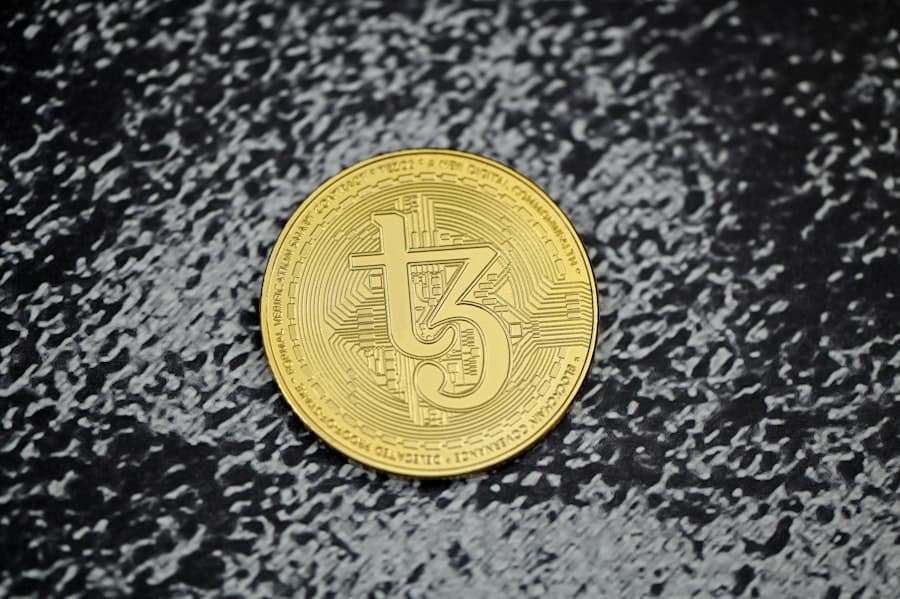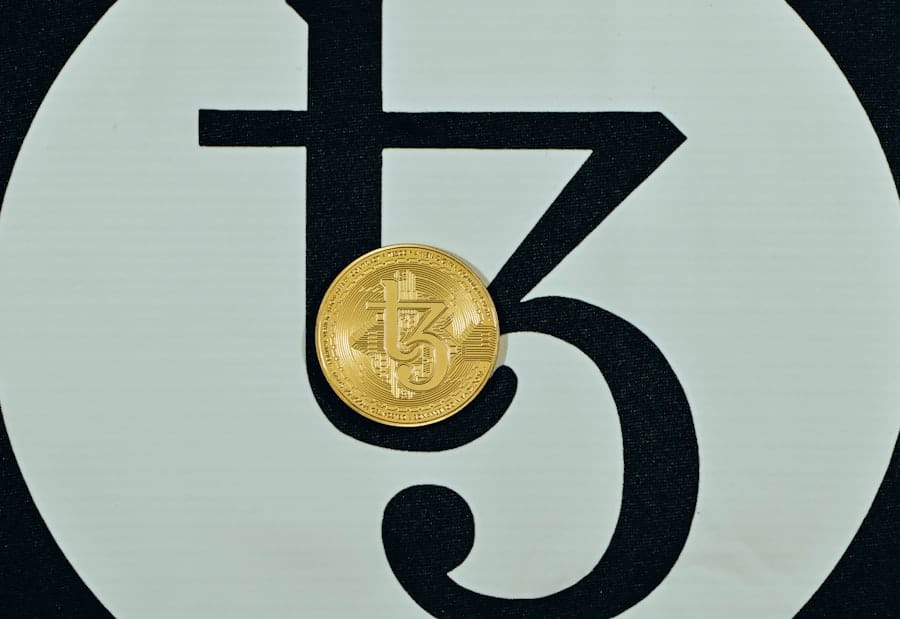The advent of 5G technology marks a significant leap forward in the realm of telecommunications, promising to revolutionize how we connect, communicate, and conduct business. Unlike its predecessors, 5G is designed to deliver ultra-fast data speeds, reduced latency, and the ability to connect a vast number of devices simultaneously. This next-generation network operates on a higher frequency spectrum, which allows for greater bandwidth and improved performance.
The implications of 5G extend far beyond mere enhancements in mobile connectivity; they encompass a wide array of industries, including healthcare, transportation, and notably, finance. As the world becomes increasingly interconnected, the demand for instantaneous communication and data transfer has surged. In this context, 5G technology emerges as a critical enabler of real-time financial transactions.
The ability to process payments, execute trades, and manage financial operations in real-time is no longer a luxury but a necessity in today’s fast-paced economic environment. With the promise of lower latency and higher reliability, 5G is poised to transform the financial landscape, offering unprecedented opportunities for innovation and efficiency.
Key Takeaways
- 5G technology significantly boosts the speed and efficiency of real-time financial transactions.
- Enhanced security protocols in 5G help protect sensitive financial data during transactions.
- Financial institutions and businesses benefit from improved transaction reliability and customer experience.
- Implementing 5G presents both opportunities for innovation and challenges such as infrastructure costs.
- The future of real-time financial transactions is promising with 5G enabling faster, safer, and more seamless operations.
Real-Time Financial Transactions and their Importance
Real-time financial transactions refer to the immediate processing of financial activities, such as payments, trades, and transfers, without any delay. This capability is essential in an era where speed can dictate market dynamics and customer satisfaction. For instance, in stock trading, the difference of even a few seconds can result in significant financial gains or losses.
The importance of real-time transactions is underscored by the growing consumer expectation for instant gratification; customers now demand that their payments be processed immediately, whether they are purchasing goods online or transferring money to friends. Moreover, real-time financial transactions enhance liquidity in markets by allowing for quicker responses to market changes. This immediacy not only benefits individual consumers but also institutions that rely on timely information to make informed decisions.
For example, banks and investment firms can react swiftly to market fluctuations, optimizing their strategies based on real-time data. The ability to execute transactions instantly can also reduce the risk of fraud and errors, as transactions are verified and completed in a matter of seconds rather than hours or days.
How 5G Improves Speed and Efficiency in Financial Transactions

The introduction of 5G technology significantly enhances the speed and efficiency of financial transactions through its advanced infrastructure. With data transfer rates reaching up to 10 Gbps, 5G networks can handle vast amounts of information simultaneously. This capability is particularly beneficial for high-frequency trading platforms that require rapid execution of trades based on real-time market data.
The low latency characteristic of 5G—often as low as one millisecond—ensures that transactions are processed almost instantaneously, allowing traders to capitalize on fleeting market opportunities. In addition to speed, 5G technology facilitates improved efficiency through its ability to support a greater number of connected devices.
For example, smart ATMs equipped with 5G connectivity can provide real-time updates on cash availability and transaction status, enhancing customer experience while reducing operational costs. Furthermore, the integration of 5G with artificial intelligence (AI) can lead to more sophisticated algorithms that analyze market trends and execute trades with unparalleled precision.
Enhanced Security Measures with 5G Technology
As financial transactions become increasingly digital and instantaneous, security remains a paramount concern for both consumers and institutions. 5G technology introduces several enhanced security measures that address these challenges. One of the key features of 5G is its ability to support advanced encryption protocols that protect data during transmission.
This is crucial in safeguarding sensitive financial information from cyber threats and unauthorized access. Moreover, 5G networks are designed with improved authentication mechanisms that can verify user identities more effectively. For instance, biometric authentication methods such as facial recognition or fingerprint scanning can be integrated into mobile banking applications, providing an additional layer of security.
The decentralized nature of 5G also contributes to enhanced security; by distributing data across multiple nodes rather than relying on a single point of failure, the risk of data breaches is significantly reduced. Financial institutions can thus operate with greater confidence in the integrity of their systems.
Impact of 5G on Financial Institutions and Businesses
| Metric | 4G Network | 5G Network | Impact on Real-Time Financial Transactions |
|---|---|---|---|
| Latency | 30-50 ms | 1-10 ms | Significantly reduces transaction processing time, enabling near-instant settlements |
| Data Transfer Speed | 100 Mbps | 1-10 Gbps | Allows faster transmission of large financial data sets and real-time analytics |
| Network Reliability | 85-90% | 99.9% | Ensures consistent connectivity for uninterrupted transaction processing |
| Connection Density | 10,000 devices/km² | 1,000,000 devices/km² | Supports massive IoT devices for enhanced financial monitoring and automation |
| Energy Efficiency | Moderate | High | Reduces operational costs and supports sustainable financial infrastructure |
The impact of 5G technology on financial institutions and businesses is profound and multifaceted. For banks and other financial service providers, the ability to offer real-time services can lead to increased customer satisfaction and loyalty. Customers are more likely to engage with institutions that provide seamless experiences, such as instant fund transfers or immediate loan approvals.
This shift towards real-time services necessitates a reevaluation of existing business models and operational strategies. Additionally, businesses across various sectors can benefit from the efficiencies introduced by 5G technology. Retailers can implement advanced point-of-sale systems that process transactions instantly while providing customers with personalized offers based on their purchasing history.
Similarly, logistics companies can utilize real-time tracking systems powered by 5G to optimize supply chain management and improve delivery times.
Opportunities and Challenges of Implementing 5G for Real-Time Financial Transactions

While the opportunities presented by 5G technology are substantial, the implementation process is not without its challenges. One significant hurdle is the need for substantial investment in infrastructure. Financial institutions must upgrade their existing systems to fully leverage the capabilities of 5G networks.
This includes not only hardware upgrades but also software enhancements to ensure compatibility with new technologies. Moreover, regulatory considerations play a crucial role in the adoption of 5G for financial transactions. Governments and regulatory bodies must establish frameworks that address issues such as data privacy, cybersecurity standards, and compliance requirements.
The rapid pace of technological advancement often outstrips regulatory processes, leading to potential gaps in oversight that could expose consumers and institutions to risks.
Future Outlook for 5G and Real-Time Financial Transactions
The future outlook for 5G technology in the context of real-time financial transactions is promising yet complex. As more regions around the world roll out 5G networks, we can expect an acceleration in the adoption of real-time services across various sectors. Financial institutions will likely continue to innovate their offerings, integrating advanced technologies such as AI and machine learning to enhance decision-making processes and customer interactions.
Furthermore, as competition intensifies among financial service providers, those who successfully harness the power of 5G will gain a significant competitive edge. The ability to offer faster services with enhanced security features will become a key differentiator in attracting and retaining customers. However, this competitive landscape will also necessitate ongoing investment in technology and talent to stay ahead of emerging threats and evolving consumer expectations.
The Advantages of 5G for Real-Time Financial Transactions
The advantages of 5G technology for real-time financial transactions are manifold, encompassing speed, efficiency, security, and transformative potential for businesses and consumers alike. As we move further into an era defined by instantaneous connectivity and digital interactions, the role of 5G will only become more critical in shaping the future of finance. By enabling seamless transactions and fostering innovation within financial institutions, 5G stands poised to redefine how we engage with money in our daily lives.
The journey towards fully realizing these benefits will require collaboration among stakeholders across industries, but the rewards promise to be substantial for those who embrace this technological evolution.
In exploring the transformative impact of 5G on real-time financial transactions, it’s interesting to consider how advancements in technology are reshaping various sectors. For instance, the article on what NFT images are delves into the intersection of digital assets and financial technology, highlighting how faster connectivity can enhance the trading and ownership of NFTs. This synergy between 5G and emerging digital trends underscores the potential for rapid transaction processing in the evolving financial landscape.
FAQs
What is 5G technology?
5G is the fifth generation of wireless network technology, designed to provide faster speeds, lower latency, and greater connectivity compared to previous generations like 4G.
How does 5G improve real-time financial transactions?
5G enhances real-time financial transactions by significantly reducing latency, increasing data transfer speeds, and improving network reliability, which allows for faster and more secure processing of payments and trades.
Why is low latency important for financial transactions?
Low latency ensures that data is transmitted and received almost instantaneously, which is critical for time-sensitive financial activities such as stock trading, fraud detection, and payment processing.
Can 5G help prevent fraud in financial transactions?
Yes, 5G supports advanced security features and faster data analysis, enabling real-time monitoring and quicker detection of fraudulent activities during financial transactions.
What types of financial services benefit most from 5G?
Services such as mobile payments, high-frequency trading, blockchain transactions, and real-time risk management benefit significantly from 5G due to its speed and reliability.
Is 5G secure enough for financial institutions?
5G networks incorporate enhanced security protocols, including improved encryption and authentication methods, making them suitable for handling sensitive financial data.
How does 5G affect mobile banking?
5G enables smoother and faster mobile banking experiences by reducing delays in transaction processing, improving app responsiveness, and supporting more complex financial services on mobile devices.
Will 5G reduce transaction costs in finance?
By increasing efficiency and speed, 5G can help reduce operational costs associated with transaction processing and infrastructure, potentially lowering overall transaction costs.
Are there any challenges in implementing 5G for financial transactions?
Challenges include the need for updated infrastructure, ensuring compatibility with existing systems, addressing security concerns, and managing regulatory compliance.
When can financial institutions expect widespread 5G adoption?
Widespread 5G adoption in finance is ongoing and expected to grow rapidly over the next few years as network coverage expands and more institutions upgrade their technology.

